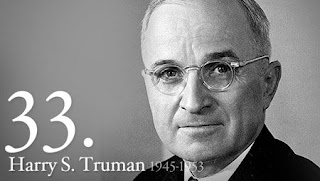
General TNI (Ret) Susilo Bambang Yudhoyono, popularly known as SBY, was born in Pacitan, East Java, on 9 September 1949. He graduated from the Military Academy in 1973-top in his class. He received his fourth star in 2000. In the first-ever direct presidential election in Indonesia in 2004, Susilo Bambang Yudhoyono, running on a platform for "more just, more peaceful, more prosperous, and more democratic Indonesia", was elected as the 6th President of the Republic of Indonesia, gaining a landslide 60% of the popular vote over the incumbent President Megawati Soekarnoputri.
President Yudhoyono is also an accomplished scholar. He was educated in the United States, where he received his Masters degree in Management from Webster University in 1991. He continued his study and earned a Doctorate Degree in Agricultural Economics from Bogor Institute of Agriculture, West Java, Indonesia, in 2004. President Yudhoyono was awarded with two honorary doctorates in 2005, respectively in the field of law from his alma mater, Webster University, and in political science from Thammasat University in Thailand.
During his 27-year distinguished military service, President Yudhoyono took an extensive range of training, education and courses, both in Indonesia and overseas. President Yudhoyono also held numerous important posts and positions as troop and territorial commander, staff officer, trainer and lecturer. He served both in the field and at headquarters, as well as missions overseas. He was the Commander of the United Nations Military Observers and Commander of the Indonesian Military Contingent in Bosnia-Herzegovina from 1995-1996.
For his outstanding service, President Yudhoyono was decorated with 24 medals and awards, including the UNPKF Medal, the Bintang Dharma, the Bintang Mahaputera Adipurna and the Bintang Republik Indonesia Adipurna, the highest national medal for excellent service beyond the calls of duty.
Prior to being elected, President Yudhoyono held various important government positions, including Minister of Mining and Energy and Co-ordinating Minister for Political, Social, and Security Affairs in the National Unity Cabinet under President Abdurrahman Wahid. He again served as Co-ordinating Minister for Political, Social, and Security Affairs in the Gotong Royong Cabinet under President Megawati Soekarnoputri. It was in his capacity as Coordinating Minister that he became internationally recognized for leading Indonesia's counter-terrorism efforts.
President Yudhoyono is also known for his activities in various civil society organizations. He served as Co-Chairman of the Governing Board of the Partnership for the Governance Reform, a joint Indonesian-international organization focused on the improvement of governance in Indonesia. He also served as Chairman of the Advisory Board of the Brighten Institute, an institution devoted to studying the theory and practice of national development policy.
President Yudhoyono is a keen reader and has authored a number of books and articles including: Transforming Indonesia: Selected International Speeches (2005), Peace deal with Aceh is just a beginning (2005), The Making of a Hero (2005), Revitalization of the Indonesian Economy: Business, Politics and Good Governance (2002), and Coping with the Crisis - Securing the Reform (1999). Taman Kehidupan (Garden of Life) is his anthology published in 2004. President Yudhoyono speaks English fluently.
President Yudhoyono is a devoted Moslem. He is married to Madam Ani Herrawati. The first couple is blessed with two sons. The oldest is First Lieutenant Agus Harimurti Yudhoyono, who graduated top in his class from the Military Academy in 2000 and is now serving at the elite 305th Airborne Battalion of the Army Strategic Reserves Command (KOSTRAD). The youngest, Edhie Baskoro Yudhoyono, earned his degree in Economics from Curtin University, Australia.

























